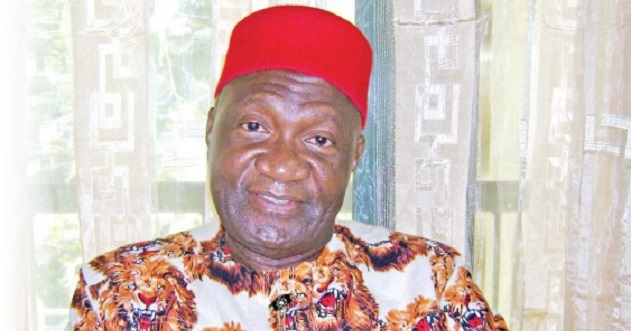Graffiti
How Did We Start Having Parallel Kings For One Community?

Long time ago, when culture, tradition and social etiquette were sacred and intact, kings, especially in Igboland, were a product of intense choice of the oracles. Kings barely emerged through elections and partisan interactions. And with monarchical kingdoms holding an unquestionable prerogative to the royal thrones of most communities at the time, it was difficult to manipulate the process, with the heirs to the thrones already obvious. Even in few communities that practiced rotational system of kingship, the process was peaceful and sacred. Sadly, that respected system has hit a devastating end today. Not with other ethnic groups in Nigeria, but sadly with ndi Igbo.
The present day traditional rulership in Igboland, permit me to say, has lost the ancient aura that made it one of the most revered traditional institutions ever initiated by man. Days when the voice of the king was the voice of the ancestors have been overtaken by greed, politics and covetousness. The office of the king looks to have been sold out for cheap pennies. The thrones that once reflected cultural essence and fear, have turned to objects of comic play and internecine dishonour. So you see one community waging wars over who becomes the king, and sometimes these wars last for years, even defying government interventions. Yet, they remain without a designated king. The people, mostly helpless, can only groan and trade rage.
To think of having two traditional rulers for one community is a taboo; a crass disrespect to the whole essence of the Igbo cosmological perspective. It is unthinkable. No one ever dared! Days when the traditional institutions were most potent, a defaulter would have the gods, the ultimate kingmakers, to contend with. But the once-feared institution has been desecrated by those who see being a king as an avenue to riches, absolute power, and faultless judgements. Those who toss the King’s Ofo around callously like a worthless object. Traditional rulers are now active politicians, ‘enthroning and dethroning’ their ‘chosen ones.’ That is just how we got to this horrible time.
Read also: ‘The Yoruba deserve 2023 presidency, the Igbo are not a serious people’
Someone said candidates who are vying for kingship positions now bribe kingmakers, and the one that eventually bribe the most would become the ‘winner.’ Truth be told, a so-called king who bribed his way onto the throne will have a nightmare of a regime, and leave behind a legacy unworthy of a king. If there is ever a hope of healing, I doubt, from the debris of self-destruction, it has to be now. Ndi Igbo have come so far in traditional history to go down in shame.
There is never a submission that would justify the rot in the present traditional setting of the Igbo people. Most times, these rots reflect the general picture of Nigeria’s leadership maladies. It is as though the traditional institutions sit on a stool trying direly to emulate the bad posture of the country’s leadership mess. Such is a horrible rerout from the proverbial ideology of finding strength in community. In a community where kingship has become a warfare rather than a scared rite, the spirit of peace, strength and community have departed from such place.
But, what is more messy? The stools of traditional rulers in modern times have become more of a honeypot than what they depicted in the ancient time — duty, dedication, and doggedness. Today, the throne goes to the rich rather than someone who understands the basic of truth, culture and peace. It has become about money, gains and who-knows-who. The man who possesses all the prerequisites, but is not rich and well-connected, has already lost the bidding to his competitor, whose lone weapon is whom he knows. Sadder it has become that some governments now interfere, and in some cases, single-handedly ‘annoint’ a king, leaving the people of such ill-fated community in disarray and separated. Such is a terrible move. But the rot in the traditional government has eroded to the point of worse porosity. Such weak structure can give way to all manner of frivolities.
The Igbo traditional identity is frailing. The abysmal cultural standards of the modern rural politics have mocked the revered old principles of the people, and splashed filths in the face of the Igbo sacred ideals. Perhaps national politics has eluded the Igbos because of this unkempt history. For how can a man who has not made his hut right want to revamp another’s mansion?
By Daniel Ezeigwe…
Join the conversation
Support Ripples Nigeria, hold up solutions journalism
Balanced, fearless journalism driven by data comes at huge financial costs.
As a media platform, we hold leadership accountable and will not trade the right to press freedom and free speech for a piece of cake.
If you like what we do, and are ready to uphold solutions journalism, kindly donate to the Ripples Nigeria cause.
Your support would help to ensure that citizens and institutions continue to have free access to credible and reliable information for societal development.






















